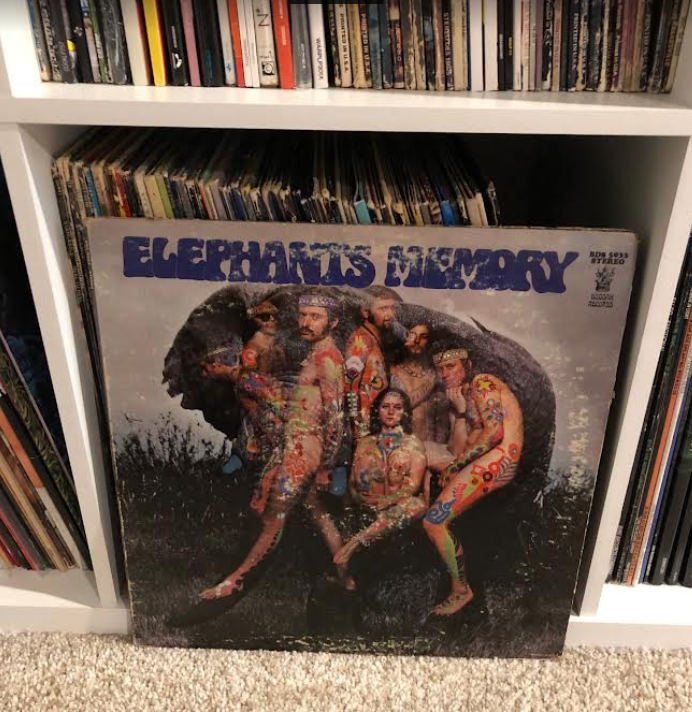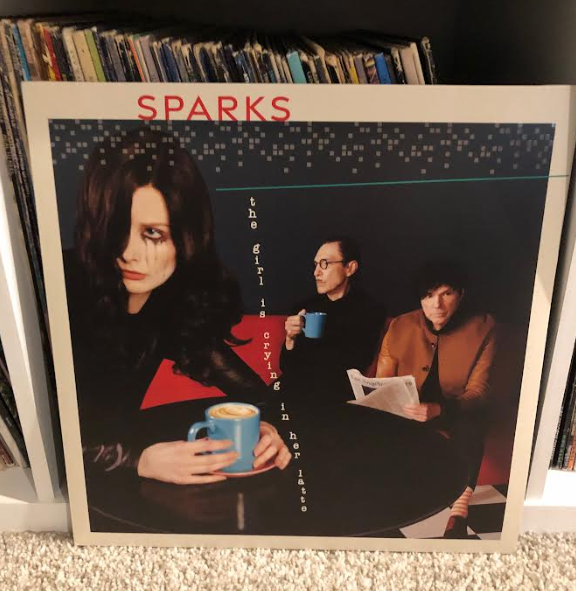
このアルバムについてのすべてはなんとなく :: Everything about this album is bullshit
There are a number of genres which seem to exist in their own world; music that may cross over from time to time but mostly just gets talked about in the context of itself. You know the ones – prog, metal, trance, IDM, etc. Once you get somewhat deep into them you start to encounter the albums which take the identifying properties of the genre and crank ’em up to 11. These are the albums which tend to be classics within their scene, albeit a lot more polarizing than most of the canonized stuff. So like Nattens Madrigal for metal, Go Plastic for IDM, or almost everything Gentle Giant did for prog. Maybe you dig ’em, maybe they hit you on a level that nothing else does, but you sure as hell wouldn’t play them for anyone who wasn’t indoctrinated already.
This gets interesting for vaporwave, a genre which became self-aware, ironic, and kinda shitty on Day 1. Ramona Xavier, the woman behind 情報デスクVIRTUAL, (translation: Virtual Information Desk) knows this better than anyone, even remarking that she’s released some intentionally awful albums just to see if people would attempt to find a deeper meaning in it. Those familiar with her work may have their suspicions as to which albums those are. Truth is, vaporwave relies so much on the ideas of nostalgia, aesthetic, and atmosphere, concepts which mean totally different things to different people. Maybe it sounds like a joke to you, but to someone else it might be weirdly profound, or something that manages to coax out a distant, very specific memory of childhood. 幌コンテンポラリー (translates to: Contemporary Sapporo) was described by the artist herself as “a parody of American hypercontextualization of e-Asia circa 1995”. I have no idea if she meant something by that, or if she just thought that’s what a vaporwave artist would say – after all, Ramona was all of three years old in 1995. If you lived through the 90’s, especially if you played a lot of video games back then, you might be able to figure what she’s talking about there. But don’t look too much into it. 幌コンテンポラリー is not exactly intended to a serious statement – if the 4/20 release date (happy 5th birthday!) and 69 minute runtime don’t tip you off, then maybe the tracklisting will. If you wanted to understand vaporwave without ever actually listening to it, a stroll through the song titles here would probably do it.
The defining trait of 幌コンテンポラリー is that it’s played oddly straight. Vaporwave generally tends to corrupt its source material a lot, often by chopping it up, slowing it way down, or adding a bunch of artificial noise to it. There’s not a whole lot of that here, outside of a general tempo shift that pitches things down slightly. There is some looping, but it’s generally not as obvious as it tends to be in vaporwave, if only because the source material is so static. Only on the last track do things start to get glitched out a bit. Eventually the realization starts to set in that you’re listening to over an hour worth of basically untreated hold music. There is really not any recontextualization happening here; if you listen to the originals (and God help me, I did), you can hear which parts she plucked out, and unlike Floral Shoppe, what you get here doesn’t sound markedly different from the source material. Sure, she’s doing a lot of curating, picking out good minute-long stretches from longer tracks and looping them around, but you could probably plop this right into the weather forecast and no one would bat an eye. What makes the joke work is the fact that this album wound up being somewhat popular. It’s probably one of the most famous albums in a genre that has a reputation for being subversive, hip, and edgy (MTV even began appropriating it), but it really is made almost exclusively from the stuff you’d rag on your Mom for liking. John Tesh, David Sanborn, Luther Vandross, The Rippingtons, Al Jarreau, Dave Koz, Kirk Whalum, they’re all here. The very cultural signifier of “bad music”. Not only does she got the cool college crowd not just listening to it, but they’re also writing about its merits and analyzing it in a way they never would otherwise (as I am, right now!). It even manages to flip the trope I mentioned in the first paragraph on its head; the most “extreme” vaporwave album is the one that’s probably the easiest to listen to, but you’d still never want to play it amongst friends and family. I mean if someone catches you listening to some extreme drill n’ bass they’d probably think “you’re weird”, but if they catch you listening to this they’d think “you suck”. You could try explaining “no, this is actually a parody of American hypercontextualization of e-Asia circa 1995”, but that would probably it worse. Then you come off like someone excited to wear their new ugly ironic Christmas sweater but is planning to just stay at home and not see anyone.
Weirdly enough, the album does sneak up on you. The first track, “SHOP@HOME NETWORK LLC” (obviously, I am going to screw up these track titles) is a bitter pill; with blasts of MIDI synth chords and big gated drums, it is infomercial stock music incarnate. The second ain’t much better – smooth, New Age pool hall jazz with a lot of sax (get used to it), though this time you can hear the loop; it still deolves into a snappy piano solo which swings a little. But then the third (“ODYSSEUSこう岩寺「OUTDOOR MALL」”) comes and gets me in a big way. Same elements as the first two, but there’s something surreal and melancholy about it. All she does is slow it down by maybe 15% and I think loop one bit, but somehow it just transforms into something that sounds off, as though it’s being played in the wrong key. So, that’s the album. Vaguely pleasant, mildly toe-tapping, and smooth as hell, with some occasional moments of real beauty.
So what does it say that I actually enjoy it? Well, that’s the joke isn’t it? I’d never find myself throwing some John Tesh or David Sanborn on the iPod but slap some Japanese characters on it and turn it into a meme and I’m suddenly onboard. It’s not that the music is unlikeable, but rather that its become the very definition of the stuff you can only really dig in an ironic and detached way. I think what that comes down to is that people do not like being pandered to, and everything about this kind of music is pandering. You ever hear of that Komar and Melmaid thing where they surveyed a thousand people about the things they liked and disliked in music and used it to create the most likeable song of all time? This is basically that; so focus grouped and bland that you feel like a sucker for liking it. One imagines the musicians behind it sitting at their cubes and putting this stuff together, if you can even imagine real humans playing this stuff at all. That said, my initial impression of this album was wrong; while I assumed most of the music was taken from advertisements and video game menus, it appears nearly everything is taken from bona fide Smooth Jazz and New Age records. Listening to the originals is a trip – first thought is always “why is this so fast?”, as most of this is just slowed down and pitched to a different key. In fact the whole thing seems to be aimed at the people who really over analyze vaporwave, perhaps the same people who wrote overwrought essays about Floral Shoppe (*ahem*). That said there’s a totally different feeling between these two albums. Floral Shoppe is surreal and strange, but the punchline is that she didn’t have to do a whole lot to get them to sound that way. On 幌コンテンポラリー it seems to be about how little one has to do to in order to be considered “vaporwave”. If she’s just perusing her mom’s CD collection and screwing around for an hour in Audacity, does it count? Is there even a such thing as “vaporwave”?
But hey. If there is, than this album is it. 幌コンテンポラリー occupies a strange spot in my music collection – it is one of the few albums I can plunk on the stereo and enjoy without any mental energy whatsoever. It sounds just as good in the foreground as it does in the background. It grows on you, not because of any particular depth, but rather because its inherent likeability eventually creeps up on you. It’s subversive by virtue of not being subversive. Cool because it doesn’t care about being cool. Whatever, I don’t care. Happy 4/20, y’all.



Leave a comment